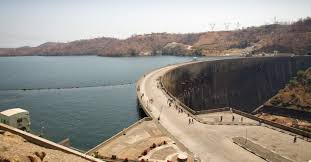US declines to support funding Zim arrears clearance, debt restructuring
The US Government will not participate in any financing options for Zimbabwe’s arrears clearance and debt restructuring process through the African Development Bank (AfDB) or otherwise as long as the Zimbabwe Democracy and Economic Recovery Act (ZDERA) is still in force, according to US Assistant Secretary of Treasury, Eric Meyer.
Meyer revealed this on Wednesday during an oversubscribed Roundtable meeting on Zimbabwe’s arrears clearance and debt resolution process dialogue convened on the sidelines of the AfDB annual general meetings that end today.
In response to the “fast-track land reform” programme in Zimbabwe in 2001, the US government put the Zimbabwean government on a credit freeze through ZDERA of 2001 (specifically Section 4C titled Multilateral Financing Restriction). US citizens have senior positions in many multi-lateral institutions and ZDERA forbids them to vote for Zimbabwe’s support in areas they have influence.
The Wednesday meeting was attended by representatives from SADC, Comesa, the International Monetary Fund (IMF), the World Bank, the United Kingdom, the US, Switzerland, the United Nations and representatives of the civil society.
President Mnangagwa, former Mozambique President Joaquim Chissano, who is the High-Level facilitator of the arrears clearance and debt resolution process, and AfDB president Dr Akinwumi Adesina, the champion of the process and Finance and Economic Development Minister Professor Mthuli Ncube participated in the meeting.
Zimbabwe owes a choking international and local debt of over US$17 billion, the bulk of which is now in arrears and through the mandate from President Mnangagwa, Dr Adesina and Chissano are spearheading an arrears clearance and debt restructuring arrangement to accord the country breathing space.
A number of development partners and creditors have embraced Zimbabwe’s arrears clearance and debt resolution process with some of them saying were keen on working with Harare on development programmes to help the country which has been burdened by debt for a long time, realise its potential.
Willie Nakunyada, Executive Director for Zimbabwe at the IMF, The World Bank Director for Regional Integration for Sub- Sahara Africa, the Middle East and Northen Africa, Boutheina Guermazi, UK representative, Phil Stevens, who is also Acting Director International Financial Institutions Department, Edward Kallon, the UN resident representative in Zimbabwe, Nicholas Radin, Switzerland Alternate Governor at the AfDB and Elias Magosi, Sadc Executive Secretary among others all supported efforts to rescue Zimbabwe.
But Meyer was stuck to ZDERA conditionalities.
Said Meyer: “I know president (Dr) Adesina mentioned ZDERA in the United States. That Act does bind us in opposing lending (to Zimbabwe) from international financial institutions and until definitely certain criteria under ZDERA are made.
“I want to touch on what really some of those criteria are. They are related to the rule of law, free and fair elections, pre-elections insisting on international standards, land reform and related civilian authority over the military and the police.
“I think you notice that there is a lot of commonality between the working groups and strategic dialogue that President Chissano outlined this evening and that is what my Government is bound to meet and that is what we are monitoring and looking at. Until these conditions are met we are not able to participate in financing options for Zimbabwe through the African Development Bank or otherwise.”
Meyer was among many AfDB stakeholders that were in Sharm El- Sheik attending the AfDB 58th annual meetings that also coincided with the African Development Fund 49th board of directors and governors meeting.
Questions now abound on how Meyer’s remarks are going to affect Dr Adesina and Dr Chissano’s work in their endeavour to convince some creditors, some of which the United States of America Government has considerable influence, to soften their stance on Zimbabwe as far as arrears clearance and debt resolution is concerned.
Added Meyer; “We are participating in this (Wednesday) strategic dialogue and we are doing this because of the importance of these reforms that extend beyond everything. These reforms if successfully executed will create the conditions for social and economic growth in Zimbabwe.”
“I want to take this opportunity to thank Your Excellence President Adesina and President Chissano for your important remarks today (Wednesday) outlining the challenges in the process that has been undertaken here.
“I have been thinking about speaking and I realised there is always a risk of the United States supporting this or the United States does not support this. That is not what we are going to do. What we are going to do is welcome the opportunity to participate in this strategic dialogue.
“This is a process that presents an opportunity for Zimbabwe to work with its partners on reforms and measure the progress along the way. That’s really important. For Zimbabwe to reach its ultimate goal of debt resolution the discussions in the dialogue must be supported by actions as has been discussed earlier today.
“It’s imperative for Zimbabwe to demonstrate credible progress in implementing governance, economic and land reforms. Not just reaching agreements with partners but not implementing those agreements. Building trust and progress take time and it’s important for Zimbabwe to stay on course through that process.”
Following the structured dialogue platform meetings held on December 01 2022, February 2023 and March 2023, three sector working groups SWGS were established on Economic Reforms, Governance Reforms and Land Tenure Reforms, Compensation of former farm owners and the Resolution of BIPPAS.-ebusinessweeekly











